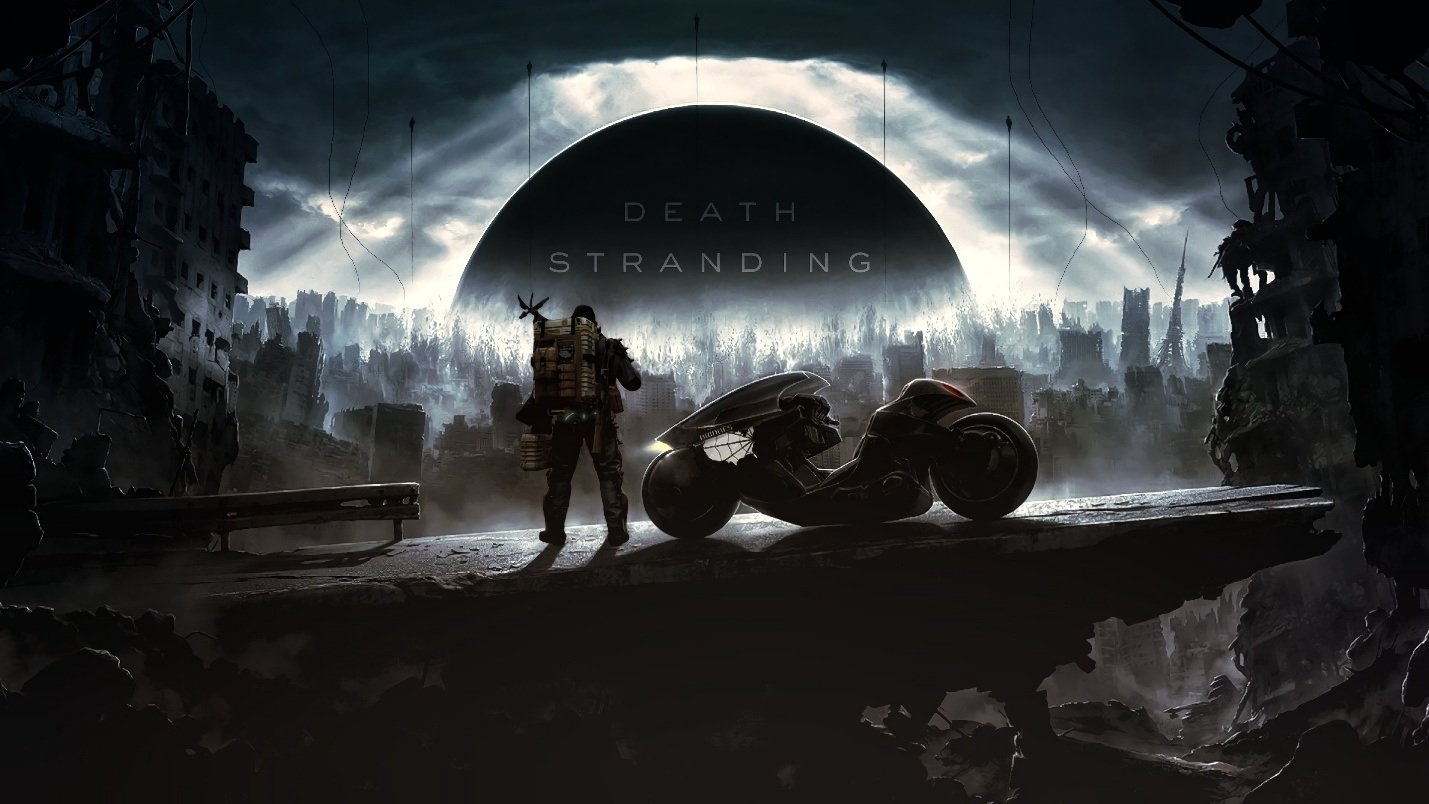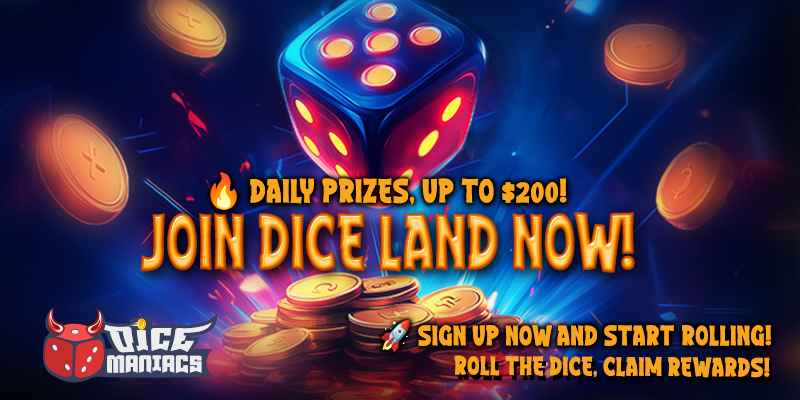Few games leave us as spellbound and contemplative as the Death Stranding series. Hideo Kojima has crafted something extraordinary with his themes of connection, grief, and survival, blending the deeply personal with the vast and philosophical. Both endings, Death Stranding 1 and its cryptic sequel, are profound reflections on human nature, leaving players with questions as much as answers. In this article, we’ll break down each game’s ending, explore its symbolism, and dive into hidden meanings. Whether you’re a novice courier or a seasoned fan, we’ve got you covered with Death Stranding endings explained. Let’s unpack the mysteries behind these unforgettable conclusions step by step.
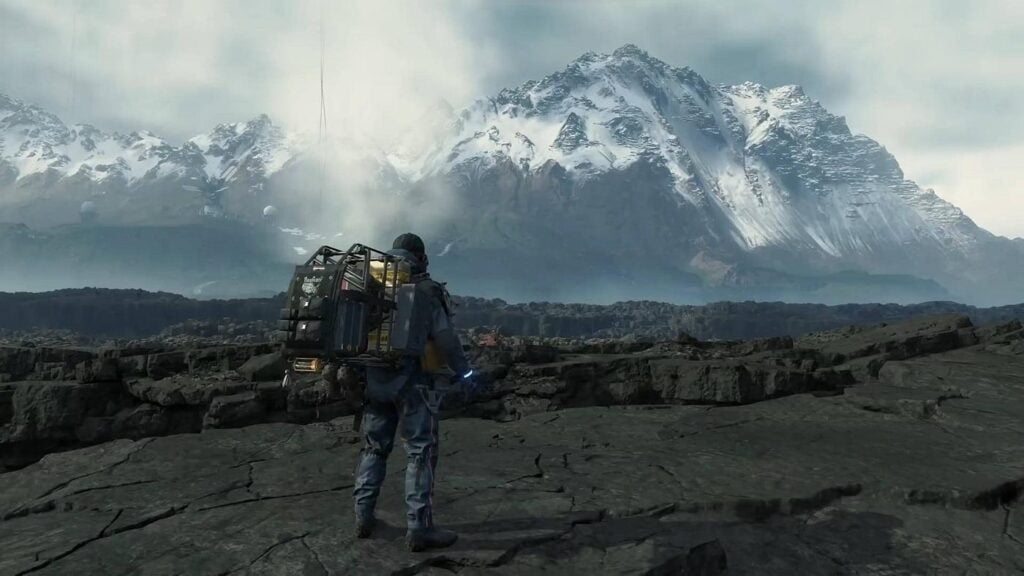
- DS centers on reconnecting a fractured world through delivery and human connection.
Death Stranding Endings Explained: Death Stranding 1 Ending
As the credits roll on Death Stranding 1, there’s an undeniable sense that Sam Porter Bridges’ journey is as elusive as it is heartfelt. Let’s take a closer look at what’s happening.
Final Events: Saving Humanity on the Beach
The climax of Sam’s odyssey takes place on the Beach, the liminal space between life and death. Here, Sam confronts Amelie, who reveals herself as the Extinction Entity (EE), an existential force destined to cause humanity’s annihilation. Though outwardly cold and commanding, Amelie is torn between her nature as an EE and her desire to preserve human life.
Sam’s decision to embrace humanity rather than give in to isolation leads to a powerful turning point. He convinces Amelie to delay extinction by choosing hope, echoing the game’s central theme of building connections, even when it feels impossible.
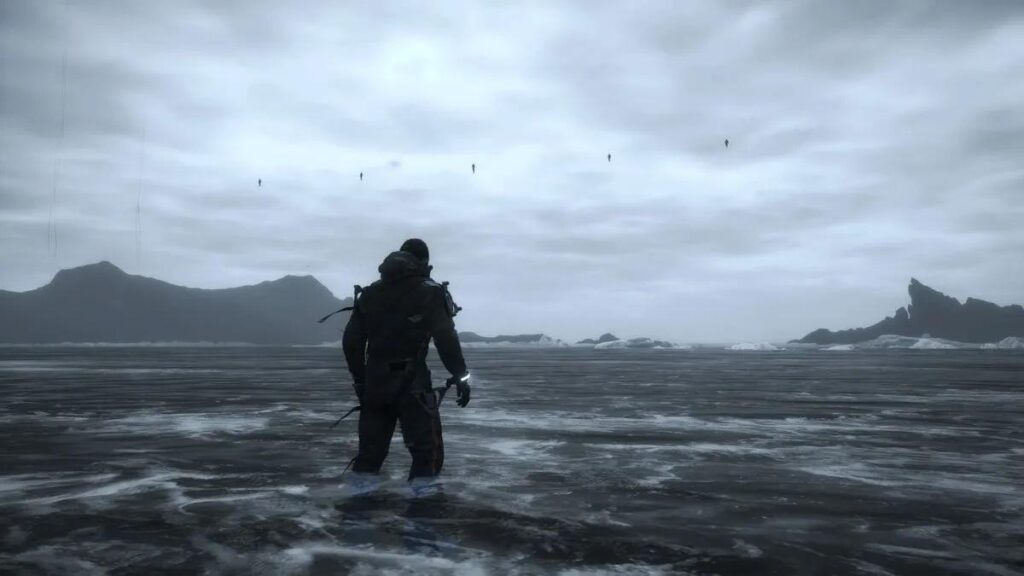
- It delves into isolation and loneliness, reflecting the emotional toll of separation in both physical and psychological terms.
Themes: Sacrifice, Redemption, and Fatherhood
Sam himself undergoes a personal transformation. His strained relationship with his past and the death of his unborn child (Lou) weigh heavily on him throughout the story. However, his bond with BB-28 (Lou) becomes his salvation, teaching him to care, trust, and open himself to others again. By the end, fatherhood transforms Sam, symbolizing the birth of new hope not only for him but for humanity.
Symbolism: The Beach and Amelie’s Role
In the context of Death Stranding endings explained, the Beach stands as a metaphysical boundary, connecting yet separating life and death, while Amelie embodies both destruction and rebirth. These elements serve as a constant reminder of the fragile line humanity walks between despair and hope.
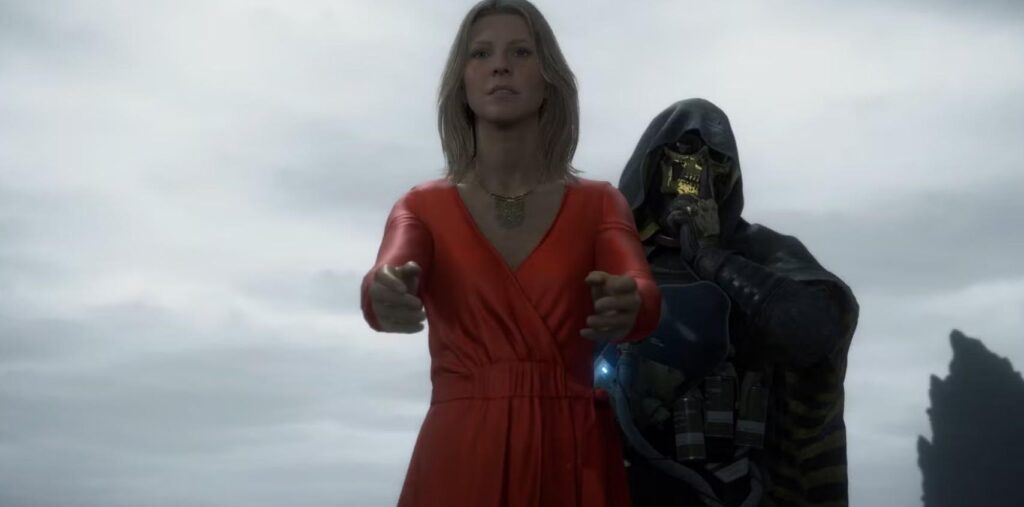
- Burden and responsibility are central, as Sam literally and metaphorically carries the weight of the world on his back.
Death Stranding 2 Ending: The Next Strand
The sequel picks up the threads of the first game while introducing new conflicts and layers to explore. In Death Stranding 2, the stakes are higher, and the themes of legacy and reconnection take center stage.
Final Events: Rebuilding Through Lou
In DS2, Sam is drawn back into the fold, this time threatened by a growing divide in the UCA (United Cities of America) and the emergence of new players like Leonidas and the Drawbridge crew. The highlight, though, is Lou; the now older and more central piece to humanity’s survival. Lou’s role in connecting not just Sam but the fractured world builds new meaning into the theme of reconstruction.
Where DS1 ends with Sam saving humanity’s present, DS2 shifts the focus toward the future, with Lou as the literal and symbolic figure for renewal. The game’s climax leaves us pondering personal responsibility, immortality through our legacies, and what “connection” might look like generations down the line.
Themes and Symbolism
While DS1 grappled with grief and sacrifice, and DS2 delved into rebirth and enduring connection, this moment feels like a key to understanding both. In the context of Death Stranding endings explained, the metaphorical drawbridges between characters, representing trust, healing, and collaboration, offer subtle yet powerful imagery that ties the emotional arcs together.
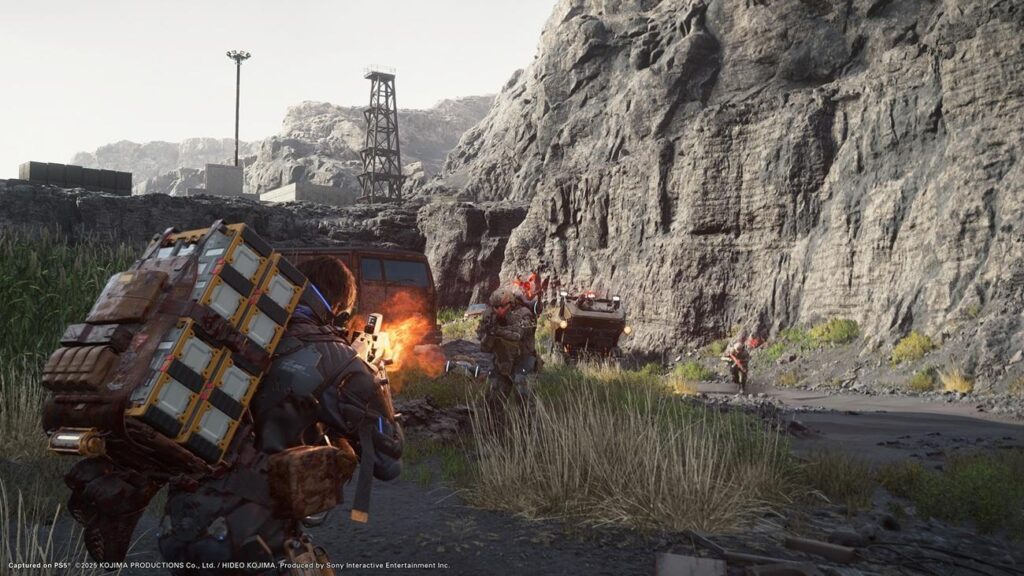
- Through its social strand system, it champions cooperation over conflict, encouraging players to help one another.
Thematic Breakdown of Both Endings: Connection and Extinction
Both games are tethered by the tension between connection and extinction. DS1 gives us an intimate connection with Sam’s struggle to rebuild personal and social bonds, while DS2 expands this to a generational perspective. Kojima challenges us to reconcile fragile hope with humanity’s cyclic march toward possible extinction.
Recurring motifs, like the Beach, Lou’s growth, and Sam’s role as a “bridge,” tie the games together in a narrative that asks us what it truly means to live, love, and leave behind meaningful legacies.
Hidden Meanings and Fan Theories About the Endings
The beauty of Kojima’s games lies in their layered mysteries. Players have debated various theories and deeper interpretations of Death Stranding’s endings for years, such as:
- Amelie’s True Nature: Is she truly working to defer extinction, or is she subtly facilitating future events for the greater good?
- The Beach as Collective Unconscious: The Beach might represent humanity’s shared dreams and fears, a metaphysical creation of global trauma.
- Lou’s Ultimate Role: In DS2, Lou seems to embody more than a character. Could she symbolize humanity’s ability to adapt and transcend its fragile beginnings?
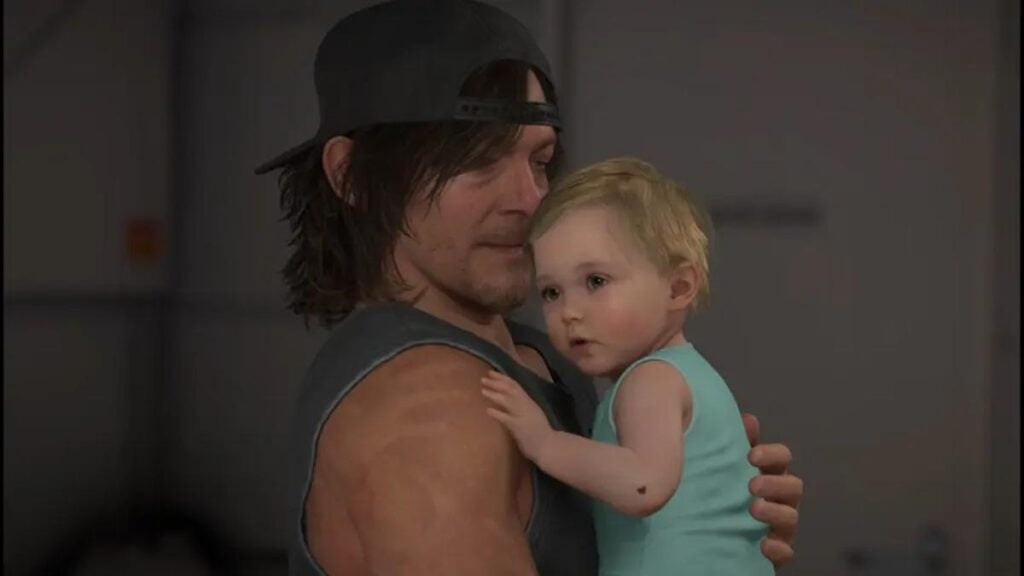
- It addresses trauma and healing, as characters confront their pasts and learn to cope with grief, loss, and forgiveness.
These ideas, and many more, are left open-ended, inviting players to draw their own conclusions.
Final Word: What Do the Endings Tell Us About Death Stranding’s Legacy?
Above all, Death Stranding is a love letter to humanity’s fragility and strength. Through its bold narrative and breathtaking ambiguity, the series gives us space to draw parallels to our own world; how we connect, how we grieve, and how we hope to leave things better for the next strand of life. When it comes to Death Stranding endings explained, Kojima may have given us the tools, but the ultimate interpretation is ours to unpack. What’s your take on the Beach, Lou, and Sam’s journey? Share your favorite theories or emotional moments, because in this world, and Death Stranding, we’re all building bridges toward understanding.
Read the on-demand Gaming Guides via Gamerative.
FAQs: Death Stranding Ending Questions Answered
Q1: Does Death Stranding 2 resolve Sam’s story completely?
A: While DS2 expands Sam’s role, it leaves hints for further exploration, ensuring his journey never feels entirely “complete.”
Q2: What happens to Leonidas in DS2?
A: As a major new character, Leonidas is integral to shaping the sequel’s exploration of rebuilding and belonging. His role bridges the old UCA and new alliances.
Q3: Are all the mysteries of the Beach answered in DS2?
A: Not entirely; DS2 deepens our understanding of the Beach but leaves some questions deliberately vague, reinforcing its role as a metaphorical mystery.
Q4: Do we know Lou’s fate after DS2?
A: While DS2 closes with hope for Lou’s future, subtle hints suggest her importance carries more weight for potential sequels.

